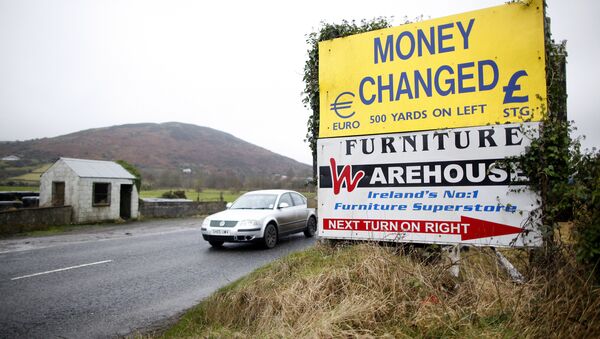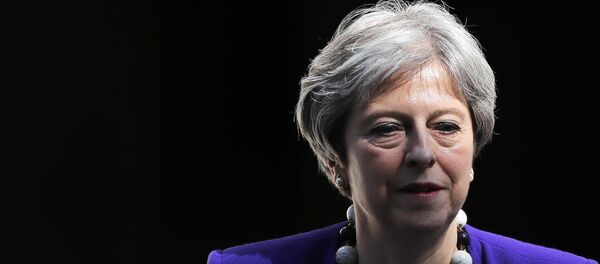Veteran Labour MP Kate Hoey, who is a staunch supporter of Brexit, has accused Northern Ireland Secretary Karen Bradley of submitting to the Irish Republican Army (IRA), designated a terrorist organization in the UK.
"Are you saying we might not consider putting up or using cameras away from the border … because of some blackmailing and threats by dissidents who might actually decide that they are going to start killing people? Are we really saying that? As that [is] what it sounds like," Bradley said, in an apparent reference to the IRA.
READ MORE: EU Brexit Draft Text Made DUP 'More Isolated' in Irish Border Debate — Sinn Fein
She also singled out the British government's "practical" stance pertaining to the ways to grapple with the sensitive issue of Northern Irish border.
Her remarks came after Bradley, one of the closest allies of British Prime Minister Theresa May, announced that there would be no new cameras on the Irish border after Brexit.
"We are committed to no new physical infrastructure at the border, no new checks or controls at the border. We have said there will be no ANPR [automatic number plate recognition] cameras, no new cameras, we have been clear that there will be no new physical infrastructure," Bradley said.
She pointed out that such infrastructure "would be a problem at the border and it is the security situation."
READ MORE: Northern Irish Border May Become 'Lawless Space' Due to Hard Brexit
The development came after May stressed that the UK government would ensure the absence of a hard border between Northern Ireland and the Republic of Ireland after Britain's withdrawal from the EU.
European Council President Donald Tusk, for his part, warned against the hard border, which he said might be prompted by London's stance on exiting from the EU single market and customs union after Brexit.
READ MORE: UK Trade Secretary Fox Warns No Hard Border Issue Before Brexit Trade Deal
On June 23, 2016, the United Kingdom voted in a referendum to leave the European Union. The negotiations between the United Kingdom and Brussels are due to be completed by the end of March 2019.



